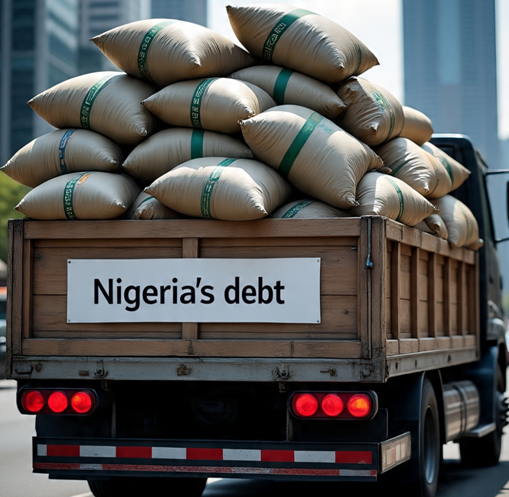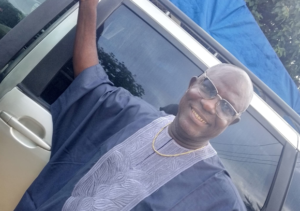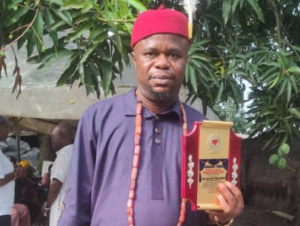Umuaka Times Editorial: Nigeria’s Debt Burden Under the APC.
3 min read
The financial landscape of Africa’s most populated giant is helplessly and rapidly deteriorating, with a heap of highly intimidating domestic and external debt profile carelessly reaching alarming levels. Umuaka Times recently came across a report which says Nigeria’s public debt has skyrocketed to N149.39 trillion ($97 billion). This information only referred to the first quarter of 2025 which represents a staggering 52% of the country’s GDP. Nigerians now live in fear over the suspicion that the Federal Government may struggle to meet its debt obligations.

The All Progressives Congress (APC) administration, led by President Bola Tinubu, has been accused of reckless borrowing, with the country’s debt profile increasing exponentially since 2015. According to data from the Debt Management Office (DMO), Nigeria’s debt has risen from N12.6 trillion in 2015 to N144.7 trillion in 2024, representing a mind-boggling 1,048% increase. This rapid growth in debt has been driven largely by currency devaluation and persistent fiscal deficits. The APC’s fiscal management has been widely criticized by financial experts who argue that the government’s borrowing habits are unsustainable. Umuaka Times also gathered last week that the country’s debt-to-GDP ratio has breached the statutory limit of 40%, rising to 52% in 2024. This has led to concerns about the government’s ability to service its debt, with debt servicing costs consuming a significant share of the national budget. Also in 2024, debt servicing costs were projected to reach N16 trillion, which represents a stark contrast to the N8 trillion recorded in 2024.
The consequences of unchecked borrowing are already being felt across Nigeria; the Nigerian economy is facing significant challenges, including high inflation, stagnant growth and a decline in foreign investment. The country’s infrastructure is also in dire need of repairs, with many Nigerians lacking access to basic amenities like electricity, healthcare, and education.
To address the debt crisis Nigeria faces today the APC government must take immediate actions to reform its fiscal policies if indeed the party means well for the nation. These actions include improving revenue generation through the diversification of revenue streams. Another aspect is the reduction of over official overdependence on oil. His Excellency Peter Obi, has somehow shouted his voice hoarse as he has consistently called for this move. The government must cut non-essential spending and prioritize capital projects to reduce its budget deficit.
Sadly enough, a look at the Nigeria’s debts puts one in a state of despondency: Total debt of Nigeria as at May 2023 was N87.38 trillion.
N30 trillion (according to Senate Committee). External Debt: $43.16 billion (N33.25 trillion equivalents). Domestic Debt: N54.13 trillion. Tinubu’s Administration (2023-present): Total Debt: N152.398 trillion (as of June 2025). Debt Increase: N65.019 trillion (43% increase since June 2023). External Debt: $45.98 billion (N70.63 trillion equivalent) as of March 2025.
On domestic debt, the country is owing N78.76 trillion (as of March 2025) while new debt is N28.96 trillion (from June 2023 to March 2025).
Some notable loan deals under Tinubu’s administration include $1.75 billion loan from the World Bank for agricultural value chain, digital infrastructure, health security, and small businesses.
$6.45 billion loan from the World Bank in October 2024, $1.7 billion Eurobond issued in December 2024, oversubscribed 5.4 times. $500 million Eurobond issued in 2024. $2.35 billion loan request to the National Assembly for 2025 budget deficit and refinancing maturing Eurobonds.
In conclusion, it is very sad that Nigeria’s debt crisis is a ticking time bomb that requires urgent attention. The APC administration must take responsibility for its fiscal mismanagement and implement reforms to address the country’s debt burden. Failure to do so could have catastrophic consequences for the economy and the Nigerian people. For now, it is either the APC does well or Nigerians will vote it out in the next general elections.




